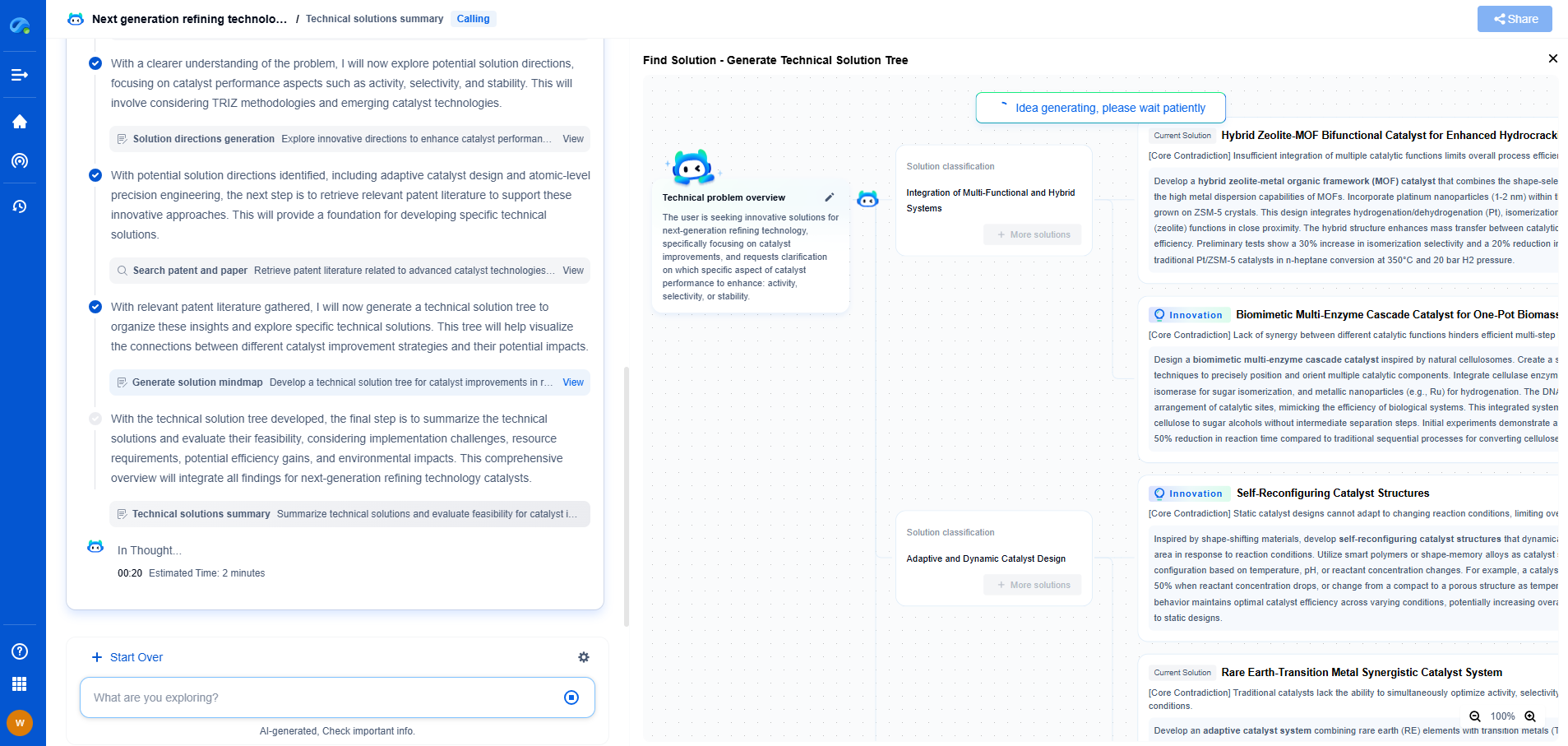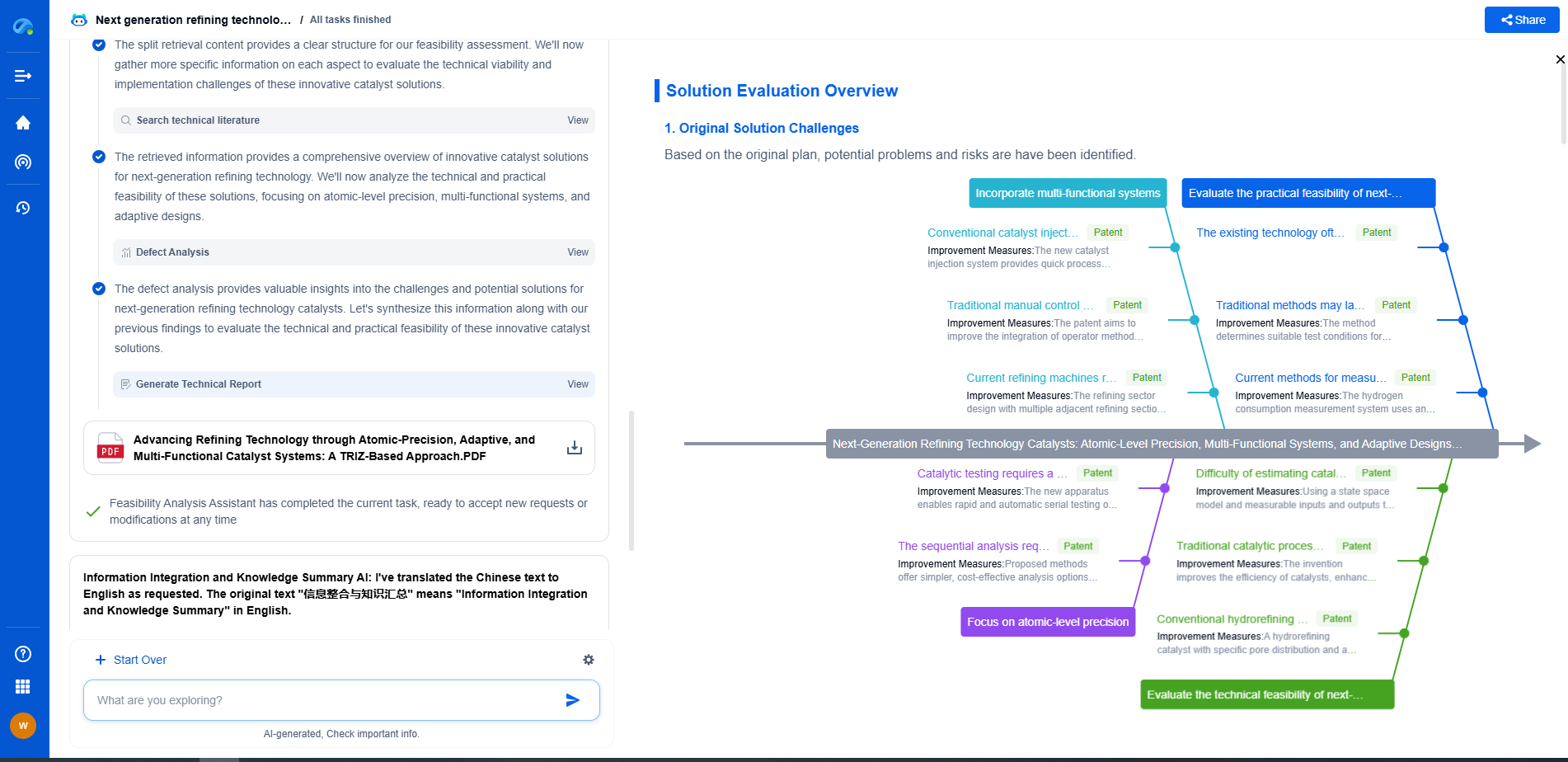Why SSDs are faster than HDDs: A simple explanation
JUL 4, 2025 |
Solid State Drives (SSDs) and Hard Disk Drives (HDDs) are both popular storage devices, but they operate in fundamentally different ways. Understanding these differences can help explain why SSDs are significantly faster than HDDs. This article will delve into the technical reasons behind the speed discrepancy between these two types of storage.
How HDDs Work
To comprehend why SSDs are faster, we must first understand how HDDs function. HDDs use spinning disks, known as platters, that are coated with magnetic material to store data. An arm with a read/write head moves over the platters to access or record data. When you request a file, the platters spin to the correct location, and the read/write head retrieves or writes the information. This mechanical nature introduces latency, as the drive needs time to physically position the head and spin the disk.
How SSDs Work
SSDs, on the other hand, rely on flash memory to store data, which is an entirely electronic method. Data is written and read through electrical impulses, allowing SSDs to access information almost instantaneously. Because there are no moving parts, SSDs eliminate the delay associated with seeking the correct position on a spinning disk. This results in much faster data access speeds.
Speed Comparison
The lack of mechanical components in SSDs is a primary reason for their superior speed. On average, SSDs can read and write data multiple times faster than HDDs. While HDDs might offer read/write speeds ranging from 80 to 160 MB/s, SSDs typically achieve speeds from 200 to 550 MB/s or more. This speed advantage is evident in everyday tasks like booting up your computer, launching applications, and transferring large files.
Reliability and Durability
SSDs also offer increased reliability and durability. The absence of moving parts means SSDs are less susceptible to physical damage from drops or shocks compared to HDDs, which have delicate mechanical components. Additionally, SSDs can withstand a broader range of environmental conditions, such as extreme temperatures or magnetic fields, making them more robust in various scenarios.
Energy Efficiency
Another benefit of SSDs' lack of mechanical parts is greater energy efficiency. HDDs require more power to spin the platters and move the read/write head, which can drain battery life more quickly in portable devices. SSDs, being purely electronic, consume less power, contributing to longer battery life in laptops and other mobile devices.
Conclusion
In summary, SSDs are faster than HDDs due to their lack of mechanical components, which allows them to access and write data electronically and instantaneously. The benefits extend beyond speed, offering improved reliability, durability, and energy efficiency. As technology advances and prices continue to drop, SSDs are becoming an increasingly attractive option for both consumers and professionals seeking faster and more reliable storage solutions.
Accelerate Breakthroughs in Computing Systems with Patsnap Eureka
From evolving chip architectures to next-gen memory hierarchies, today’s computing innovation demands faster decisions, deeper insights, and agile R&D workflows. Whether you’re designing low-power edge devices, optimizing I/O throughput, or evaluating new compute models like quantum or neuromorphic systems, staying ahead of the curve requires more than technical know-how—it requires intelligent tools.
Patsnap Eureka, our intelligent AI assistant built for R&D professionals in high-tech sectors, empowers you with real-time expert-level analysis, technology roadmap exploration, and strategic mapping of core patents—all within a seamless, user-friendly interface.
Whether you’re innovating around secure boot flows, edge AI deployment, or heterogeneous compute frameworks, Eureka helps your team ideate faster, validate smarter, and protect innovation sooner.
🚀 Explore how Eureka can boost your computing systems R&D. Request a personalized demo today and see how AI is redefining how innovation happens in advanced computing.
- R&D
- Intellectual Property
- Life Sciences
- Materials
- Tech Scout
- Unparalleled Data Quality
- Higher Quality Content
- 60% Fewer Hallucinations
Browse by: Latest US Patents, China's latest patents, Technical Efficacy Thesaurus, Application Domain, Technology Topic, Popular Technical Reports.
© 2025 PatSnap. All rights reserved.Legal|Privacy policy|Modern Slavery Act Transparency Statement|Sitemap|About US| Contact US: help@patsnap.com

